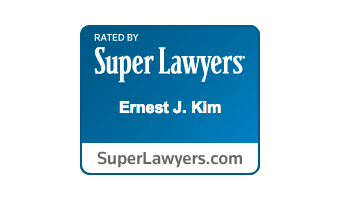PROBATE OF WILL/ESTATE ADMINISTRATION PROCESS
We know that families who seek out information regarding probate, are coming to us after having experienced the loss of a loved one. The next steps can seem overwhelming. We are here to answer all your questions.
While there is no law with a hard deadline within which the probate process has to be started, the process should be started as soon as reasonably possible, and there are some important dates to keep track of including:
- If there is a Will left by the decedent, the person who has custody of that document should deliver it to the court clerk with a copy to the named executor or a beneficiary, within 30 days after having knowledge of the death of the testator. (California Probate Code Section 8200).
- If the estate is of sufficient size (around $4M+ for married couples, or around $11M for single person in 2023) that there may be estate tax returns to be filed or tax planning needed, a probate attorney and a CPA should be consulted well within 9 months from the date of death to determine any needed tax filings and estate tax planning.
- If there is real property in the estate, there are some filings to be done with the County’s Tax Assessor/Recorder’s office within 150 days of the date of death (BOE-502-D)
- If there is a family home that qualifies for the parent-child reassessment exclusion, a claim form should be filed as soon as possible to prevent reassessment of the property tax, but no later than three years after the date of death and before the property is sold to a third party. (BOE-58)
Whether or not there is a Will, the closest family member should contact a probate attorney to look into the process of safeguarding the assets of the Decedent while the probate process gets started. Even before anything is filed with the court, if there is property, that property immediately needs to be looked after, and the steps required will be dependent on the family situation and the types of assets left by the Decedent. If there is a business for example, then immediate action will probably be required to keep the business operational and to get access to business bank accounts so that payroll and taxes can be paid, inventory secured, etc.. The same goes for rental property, stocks, etc.. We have a very simplified checklist for interim steps to consider in a typical pre-probate situation, but remember that nothing can take the place of specific legal advice for your family’s particular situation.
A good rule of thumb is that when the death certificate becomes available, the first consultation should take place to discuss the assets that need to be looked into so that the need for probate, or the possibility of non-probate methods for transfer, can be investigated.
Here is what you need to know about working with us:
Step 1 – First Contact
We strongly recommend that whenever possible, the person named as Executor in the Will, or the Decedent’s nearest family member be the one/s to initiate the first contact with our office. This is important because different relatives may have different rights and a right to inherit is not necessarily the same as priority for appointment to be administrator.
For example, where there is a Will, the person named as Executor has priority to open probate. Where there is no Will, the nearest relative (the spouse of the Decedent if they were married; If unmarried, then the Decedent’s children, then parents, then siblings, etc.) has priority in that order, to open probate. A person with lower priority will generally not be appointed to serve, unless the person with higher priority gives up their right to be appointed.
At the time of the first contact with YOU, our staff will set up a date and time for the first consultation meeting for which you should set aside 1 to 2 hours to go over the property to be probated and the methods needed for each type of asset.
At this point in the process, our staff will not be able to quote exact fees for our services because we don’t yet know what kind of assets will be probated, or what other assistance will be needed from us.
However, the State of California has a statutory fee plan in place for probate of an estate where typical probate services are compensated to the Administrator/Executor, with an equal amount to their attorney on the following fee schedule, which is based on the gross value of the estate as appraised by the court’s probate appraisers:
(1) Four percent on the first one hundred thousand dollars ($100,000).
(2) Three percent on the next one hundred thousand dollars ($100,000).
(3) Two percent on the next eight hundred thousand dollars ($800,000).
(4) One percent on the next nine million dollars ($9,000,000).
(5) One-half of 1 percent on the next fifteen million dollars ($15,000,000).
(6) For all amounts above twenty-five million dollars ($25,000,000), a reasonable amount to be determined by the court. (California Probate Code Section 10810)
Under this fee schedule, a $500,000 estate for example will pay $13,000 in fees to the Executor/Administrator, and $13,000 in fees to their attorney. These fees will be paid by the estate, not by the Administrator personally, and are paid at the end of probate after a court order approving fees. Extra services that are not typically needed in an estate (for example if there is litigation or any other extraordinary tasks not usually required in a typical probate) are charged at hourly rates of attorneys and staff.
Step 2 – The Client Questionnaire
When you come to your First Consultation, we ask that you bring as much information as you have on our Client Questionnaire, where you provide any information available about the Decedent’s general asset and family situation to help us understand the situation so we can discuss the issues relating to the properties that need to be included in the probate process, and any special considerations for those properties. The types and values of property that need to be transferred, the family who will receive that property, and general information about your concerns will help us provide you with information that is directly relevant to your situation. All information you provide is confidential. You can click the link or we can send the Client Questionnaire to you by email or mail, or you can complete it in our office by arriving 20 minutes before your consultation time.
Step 3 – First Consultation Meeting – Approx. 1-2 hours
Our First Consultation meeting will generally take 1 to 2 hours and we will go over questions and the probate process to transfer a Decedent’s property to their successors.
Step 4 – Court Document Preparation
We will prepare all of the documents needed for the official court process, then set up a signing meeting to go over them together, sign and file them with the court.
Step 5 – Probate Court Hearings
We will serve all required notices and attend all court hearings on behalf of the Executor/Administrator so that they don’t have to go to court. Once the hearing confirming the court’s appointment of the Executor/Administrator concludes and the court issues documents confirming that the Executor/Administrator now has legal authority to act, we will go over the documents and provide detailed instructions needed for marshaling and protecting the assets of the estate.
Step 6 – Estate Asset Marshaling and Reporting to the Court
As the authorized party to act on behalf of the estate, the Executor/Administrator will be able to obtain financial information, collect accounts, and review all account information from financial institutions, and we provide complete instructions and the certified documents needed at each step. We will assist the Executor/Administrator in gathering all of the Decedent’s assets so they remain protected and that important decisions needed in order to safeguard the assets (sell the stock? close the business? rent the real property? collect rent?) are made with the assistance of financial professionals who can advise the Executor/Administrator on the best options. We assist in the necessary reporting of estate assets to the court in the Inventory and Appraisals, and coordinating valuations of property with the court appointed probate referee in charge of your case.
Step 7 – Estate Debts and Taxes
As the authorized party to act on behalf of the estate, the Executor/Administrator will be able to obtain the Decedent’s credit card statements, invoices, and tax information and forms so we can help them determine how to verify and clear the Decedent’s valid debts, deal with creditor claims, monitor relevant deadlines for creditors to appear, file tax returns with a CPA, etc.. We’ll assist with providing necessary notices to creditors and potential creditors as required by law, including the Department of Health Services and other entities. We can advise on which creditors to give priority to for payment. Once the debts and taxes are cleared and the time period for claims has run out, the Executor/Administrator can begin planning the distribution of the remaining assets to the beneficiaries/heirs.
Step 8 – Accounting & Distribution
We’ll have additional conferences to discuss the distribution plan throughout the administration. Sometimes assets need to be sold to effectuate the split amongst multiple parties. Sometimes the parties can agree to keep certain properties and distribute them “in kind. ” We’ll help the Executor/Administrator give an accounting, craft a distribution plan, and get it approved, including giving the required notices along the way to protect the Executor/Administrator from complaints later on from any disgruntled parties.
The accounting is needed so that the beneficiaries and the court understand that the estate assets were properly and prudently managed, and explains what assets came into the Executor/Administrator’s hands, how it was applied, who was paid and why, and what the new balance remaining for distribution is. The accounting and distribution plan will be submitted to the court for approval. Once approved, we’ll assist the Executor/Administrator in making the approved distributions to the parties, paying final administrative fees and costs including the court approved statutory and extraordinary fees (if any), and document that the distributions have been properly made by preparing and filing the needed receipts and other documents with the court to obtain a final discharge of the Executor/Administrator, at which time the court file is closed and the Executor/Administrator has no further duties.
Some helpful terms to know for a probate estate administration:
Decedent – the person who died owning property.
Estate – the property owned by a Decedent or incapacitated person, that no longer has an “owner” in charge due to the death or incapacity of the owner, that must now be passed on to the next successors in interest
Personal Representative / Executor / Administrator – the person the court puts in charge of the estate. Their functions are the same after they have been appointed but the official title is “Executor” if they have been nominated in a Will, and “Administrator” if there is no Will that named them. The Executor will follow the instructions in the Will, while the Administrator will follow the California laws regarding intestate (no Will) estates.
Probate – the court process by which an Estate is properly managed under court supervision, created by state law to provide an orderly process of protecting estate property and making sure it passes on to the appropriate parties.
Beneficiary/Heir – the person/s who will inherit the estate assets. If they are named in a Will to receive the assets, they are called beneficiaries. If there is no Will, they are called heirs.
Creditor’s Claim – A claim filed in the probate court against the estate, for money owed by the Decedent.
Fiduciary Duties – An Executor or Administrator is a fiduciary, which means that they are basically in a position of trust, taking care of other people’s (beneficiaries/heirs) money. There are many rules for fiduciaries which the court will require an Executor/Administrator to follow, to the point where a person seeking to be appointed by the court will be required to sign the “Duties and Liabilities of Personal Representative” court form confirming that they have received these rules, before they will even be considered for appointment.





